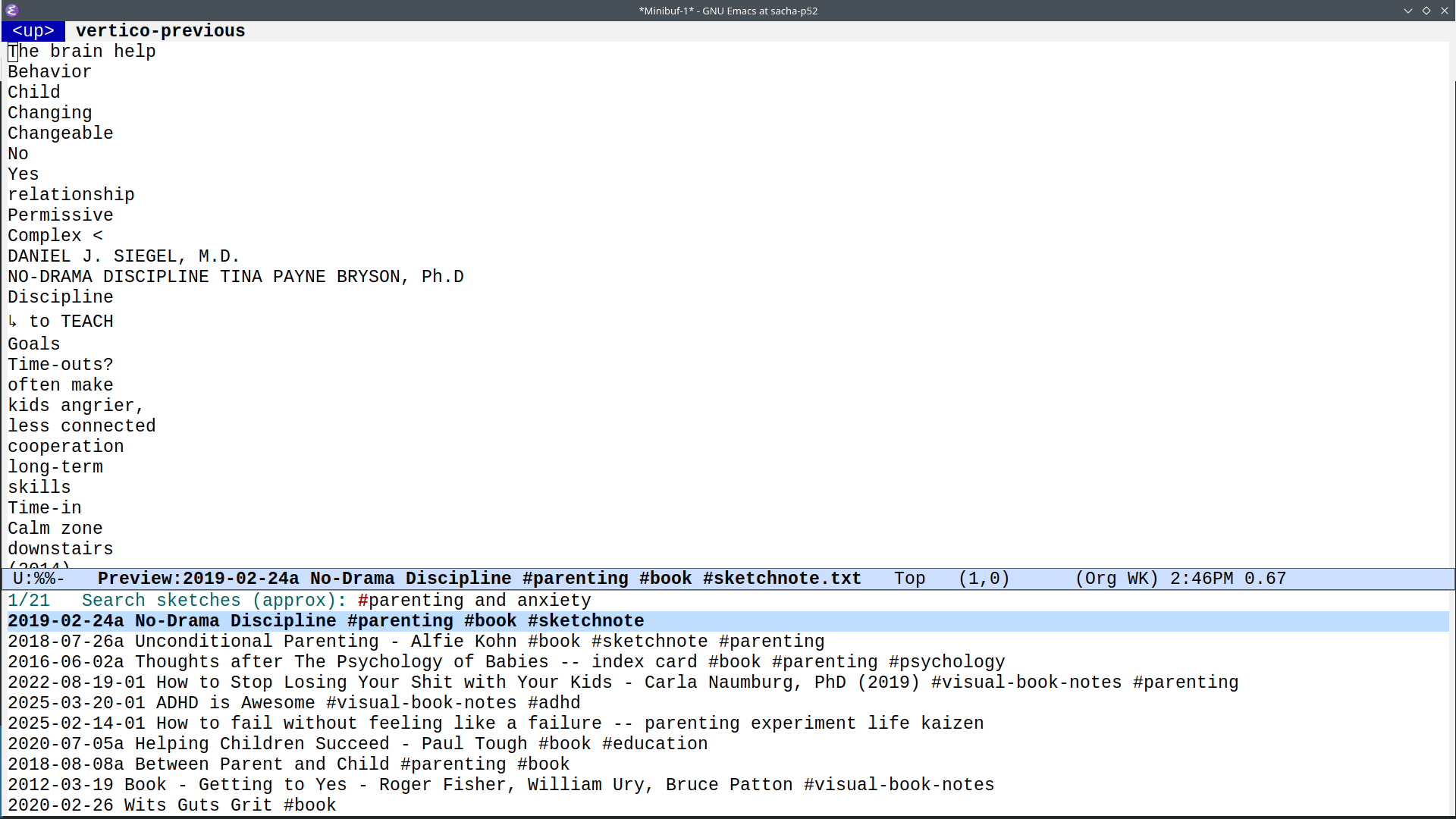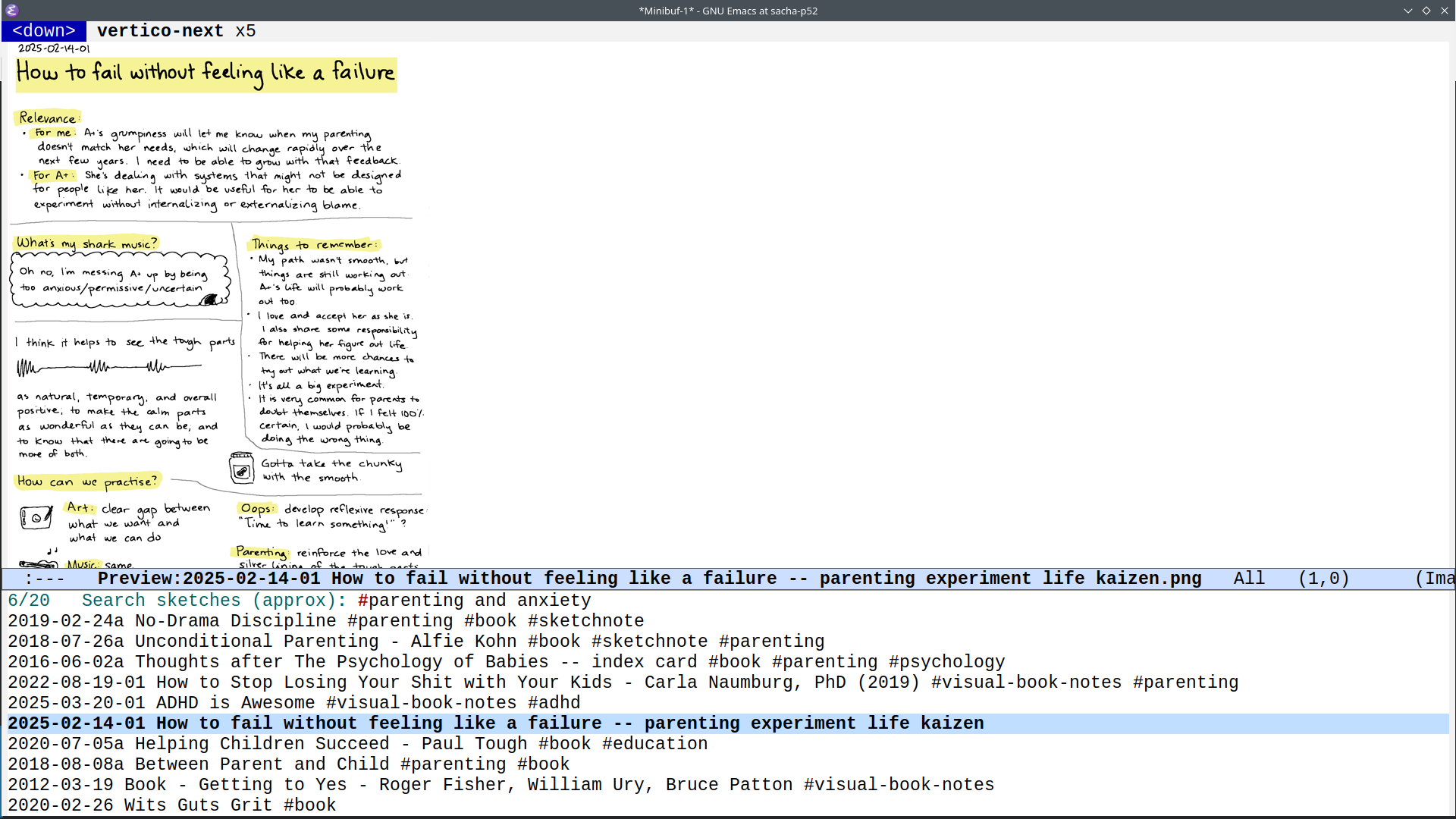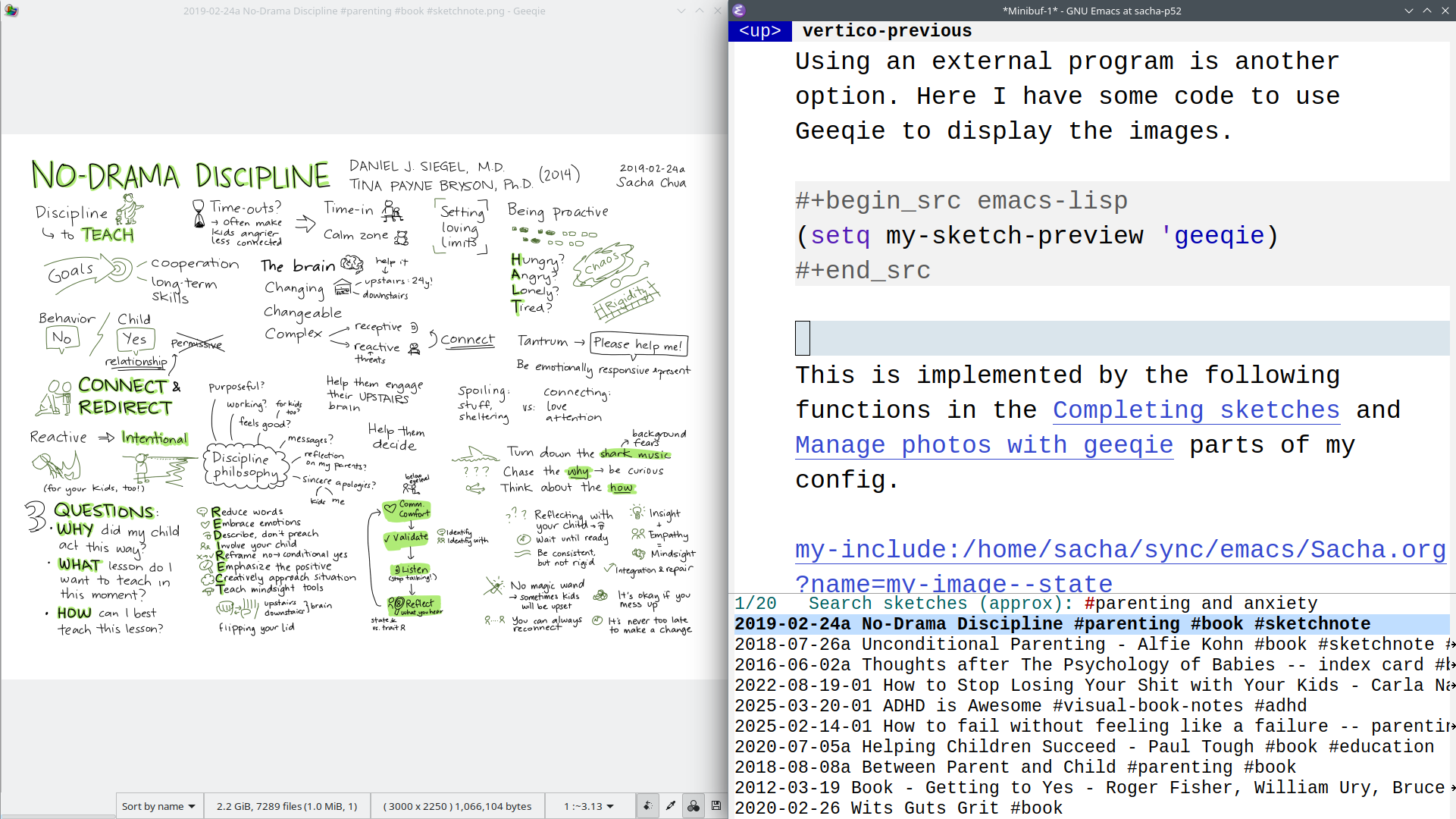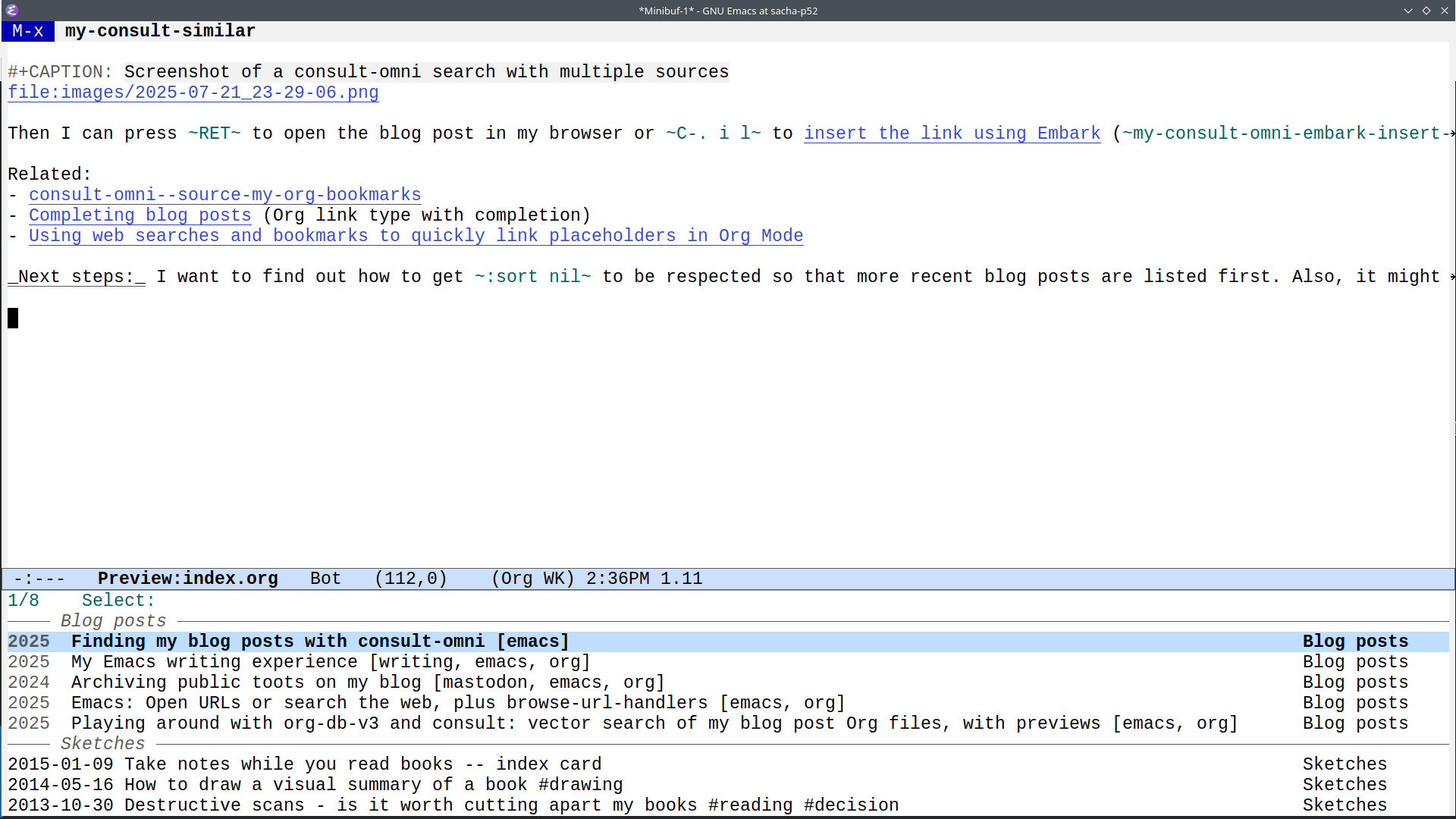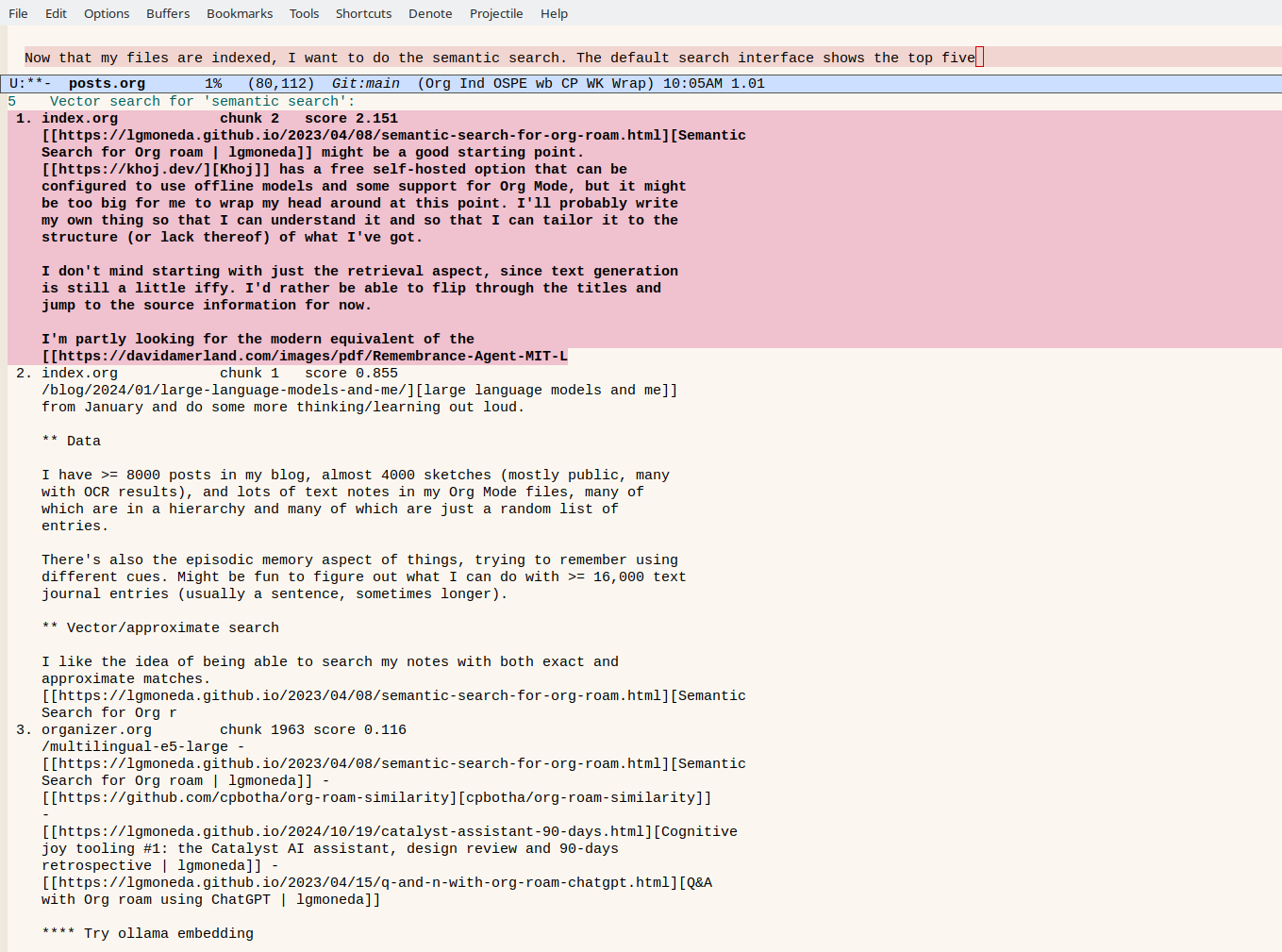2025-11-24 Emacs news
| emacs, emacs-news- EmacsConf will be in less than a month!
- Upcoming events (iCal file, Org):
- Formation avancée (2 jours) - Paris, in-person https://emacsboost.com/ - lundi 27 au mardi 28 novembre 2025
- Emacs Berlin (hybrid, in English) https://emacs-berlin.org/ Wed Nov 26 0930 America/Vancouver - 1130 America/Chicago - 1230 America/Toronto - 1730 Etc/GMT - 1830 Europe/Berlin - 2300 Asia/Kolkata – Thu Nov 27 0130 Asia/Singapore
- EmacsATX: Emacs Social https://www.meetup.com/emacsatx/events/311893360/ Thu Dec 4 1600 America/Vancouver - 1800 America/Chicago - 1900 America/Toronto – Fri Dec 5 0000 Etc/GMT - 0100 Europe/Berlin - 0530 Asia/Kolkata - 0800 Asia/Singapore
- M-x Research: TBA https://m-x-research.github.io/ Fri Dec 5 0800 America/Vancouver - 1000 America/Chicago - 1100 America/Toronto - 1600 Etc/GMT - 1700 Europe/Berlin - 2130 Asia/Kolkata – Sat Dec 6 0000 Asia/Singapore
- EmacsConf https://emacsconf.org - Dec 6 - 7
- Emacs.si (in person): Skupni ogled Emacs konference 2025 https://dogodki.kompot.si/events/b4137a21-8783-4bc5-993e-929c5ddf43bc Sat Dec 6 1445 Europe/Ljubljana
- Emacs configuration:
- Keeping a tidy .emacs.d/ with no-littering.el | Kristoffer Balintona
- Using `package-vc' to fetch development packages and share contributions (Reddit)
- I built a framework for deterministic Emacs configurations (Reddit)
- ZeniesQis/rrepo: Remote repository tracking and management. An exploration and discovery tool for Emacs configurations. - Codeberg.org (@Zenie@piaille.fr)
- Appearance:
- Navigation:
- Editing Code in Emacs (HN, lobste.rs)
- Saving and Restoring Window Configurations in Emacs (@dliden@fosstodon.org)
- ZeniesQis/gs-buf: Grid select buffers, with configurable buffer lists and buffer rings. - Codeberg.org (@Zenie@piaille.fr)
- James Cherti: kirigami.el – text folding across various modes (outline, outline-minor, outline-indent, org, markdown, vdiff, hs-minor, treesit-fold…) (Github, Reddit)
- Dired:
- Writing:
- Org Mode:
- Emacs Carnival 2025-11 — An Ode to Org Babel (@donaldh@hachyderm.io)
- Org-Mode | TyfloPodcast
- einar/inter-present-mode: Interactive presentations with Emacs Org Mode - Codeberg.org (Einar Mostad)
- org-outlook (sync your outlook agenda to org mode) now in beta (Reddit)
- (Update) org-supertag 5.1.7: Field Export to Org Properties with Progress UI
- (Update) org-workbench 0.3: Add entire org files as cards, perfect for org-roam workflows
- orgit-file: Support for org links to files in specific revs and Magit blob buffers (Reddit)
- Package to insert multiple org-roam nodes using Helm (Reddit)
- Kana: Configuring Keyboards with Org-mode Babel
- (new package) org-graphviz-mindmap (Reddit)
- Org Mode requests: [RFC] Typesetting code and links when exporting to LaTeX using RTL languages
- Org development:
- Denote:
- Completion:
- Coding:
- nfdn: Announcing Casual CSV (@kickingvegas@sfba.social)
- kanayago 0.6.0 - multi-editor real-time Ruby syntax error checking (@S_H_@ruby.social)
- A surprising upside to vc-dir marks over magit | Kristoffer Balintona
- Introducing blame-reveal.el - Git Blame in Emacs Fringe (Reddit)
- ag91/code-review: Code Reviews in Emacs (forked) (Reddit) - Github, Gitlab, Bitbucket
- Kele (Kubernetes management package) 0.7.0 has been released (Reddit)
- MX LInux: Midnight Madness (Python, Emacs, duckdb) (33:23)
- Math:
- Mail, news, and chat:
- Community:
- Fortnightly Tips, Tricks, and Questions — 2025-11-18 / week 46
- The Eternal Battle of Editors (@trevdev@fosstodon.org)
- Telegram: View @emacs_roma (@gosub@fosstodon.org) - new Telegram group for people in Rome
- Other:
- aglet/sparkweather: Sparkline weather forecasts in Emacs (@aglet@hachyderm.io)
- An Emacs Application Launcher for Regolith | Erik L. Arneson (@pymander@fosstodon.org)
- ecard: A new vCard library for Emacs (Reddit)
- Jiewawa: Tools for Studying Chinese with Emacs
- Joar von Arndt: Decentralized Personal Computing
- emacs-indigo update for stream abstractions (for the indigo cheminformatics library) (@gicrisf@fosstodon.org)
- How to Install and Set Up Emacs on Android | Khalid's Shell (@tonyptdm@mastodon.social)
- Surprisingly, Emacs on Android is pretty good | Kristoffer Balintona
- Emacs development:
- emacs-devel:
- Automatic folding based on hideshow - Michael Heerdegen, could use help with other languages
- Re: When compiling Emacs, prefer C23 if available - Paul Eggert c17 to c23
- Re: [NSApp] Memory usage anomalies - continued.. - Przemysław Alexander Kamiński - notes on malloc and NS
- Support `toolkit-theme-set-functions' on Android and execute hooks safely
- New commands to rewind decentralized VCS branches
- Default split-window-preferred-direction to 'longest'
- New command alias vc-restore
- Add `toolkit-theme' and 'toolkit-theme-set-functions'
- The –script option now enforces lexical binding (bug#79760)
- Show the diff buffer with replacements by typing 'd' in 'query-replace'
- ; * etc/NEWS: Expand on showing warnings on first daemon frame.
- ; * etc/NEWS: Mention the change about daemon startup warnings (bug#79783)
- emacs-devel:
- New packages:
- cabal-mode: Support for Cabal packages (MELPA)
- doxymin: Create doxygen style docs the easy way (MELPA)
- dwin: Navigate and arrange desktop windows (MELPA)
- easy-theme-preview: Easily preview themes (MELPA)
- gptel-agent: Agentic LLM use for gptel (MELPA)
- org-tag-tree: Define Org-mode tag hierarchies from Org subtrees (MELPA)
- tbindent: Tab Based Indentation Converter (MELPA)
- trailing-newline-indicator: Show an indicator for the trailing newline (MELPA)
Links from reddit.com/r/emacs, r/orgmode, r/spacemacs, Mastodon #emacs, Bluesky #emacs, Hacker News, lobste.rs, programming.dev, lemmy.world, lemmy.ml, planet.emacslife.com, YouTube, the Emacs NEWS file, Emacs Calendar, and emacs-devel. Thanks to Andrés Ramírez for emacs-devel links. Do you have an Emacs-related link or announcement? Please e-mail me at sacha@sachachua.com. Thank you!

